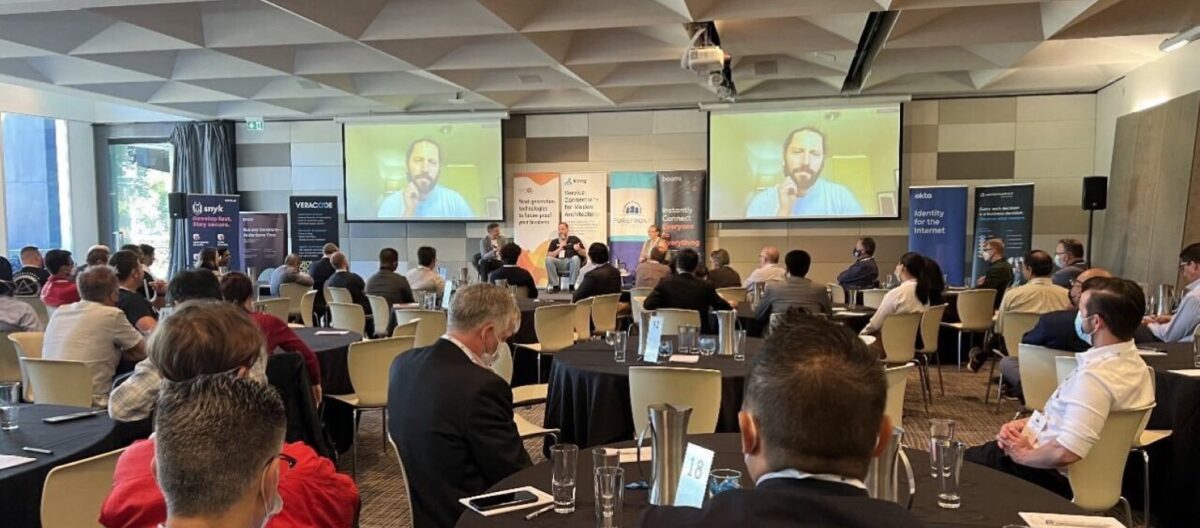3 key insights to future proof your application strategy
In February, Equal Experts was invited to facilitate a panel discussion at Forefront Events’ Application Strategy Summit in Victoria.
Joined by a reputable panel of tech leaders from some of Australia’s largest brands and organisations, the program covered everything from development and integration to culture and accelerating productivity.
As part of a session on ‘aligning developer culture with process improvement’, I conducted a discussion panel with Craig Baker, Senior Director of Engineering from AfterPay, Kevin Love former General Manager of Product Technology at Kmart, and Aaron Chipper, Chief Technology Officer and founder of FrankieOne.
Here are some of my key takeaways from the conversations.
1. There’s a strong connection between learning and development cultures.
Culture is critical. In his research and writings, American sociologist Ron Westrum explores the topology of organisational cultures. He draws a simple but compelling conclusion; stronger culture results in higher levels of trust, collaboration, and higher quality decision making.
At this point, it’s worth acknowledging an additional piece of the puzzle. In order to foster high-performing teams—and cultivate strong developer culture—we need to establish an environment where:
- Teams continuously create insights.
- Teams continuously implement improvements based on those insights.
In my experience, the most powerful cultures in development teams are two-tier. By coupling an overarching ‘learning culture’ (based on creating insights, making improvements, and continuously honing practice) with a culture of personal development (encouraging team members to build skillsets and increase their value to, and function within, the team) we create an ever-increasing spiral of high performance.
2. Cultures are mutable, making it all the more important to nurture them.
In any team or organisation, everyone is partly responsible for ensuring a healthy culture. A good culture is maintained, nurtured and curated – it doesn’t just happen. That said, leaders will always play an important role in creating and contributing to the direction of any culture.
Always remember that cultures are mutable—they’re malleable, ever-evolving, and very rarely a ‘set-and-forget’ proposition. You see examples of this when an Executive leaves an organisation and they’re replaced by a new Executive, often with a new cultural agenda or preferences for different ways of working and interacting as a team. In these instances, values play a crucial role in maintaining continuity for the culture of an organisation.
Culture is a constant consideration. The actions you take—and the processes and rituals that help define your actions—play a critical role in defining and maintaining developer culture.
3. Process improvement is an ongoing proposition, and it looks different in every organisation.
The most successful organisations strive for a culture of sustained innovation. They constantly look to improve, to reach higher levels of performance. While this is a universal truth, the way you reach these higher levels will change depending on your team, culture, sector, and a range of other factors.
There’s no one-size-fits-all pathway. Each of the panelists offered a range of strategies to trial and implement, depending on your team culture. These included:
- Ensuring the team has ownership of projects, and encouraging them to solve problems as a team unit
- Providing mentors to team members, to ensure they have access to guidance and support
- Encouraging the seeking of advice from peers and management to remove the obstacles that come with hierarchy.
As an aside, one of the most compelling, insightful books I have read about enabling autonomy—and developing processes to safeguard and maintain that autonomy within an organisation—is called Reinventing Organisations by Frederic Laloux. In particular, part 2 of the book offers some useful practical examples.
***
Thanks to Forefront Events for an incredibly well-run summit, and to our panelists and attendees for such a valuable and thought-provoking day’s discussions.
If you’re interested in learning more about establishing and maintaining a culture of high performance, please get in touch. Or, check out our You Build It You Run It playbook, which discusses a modern operating model to promote ‘continuous-learning’ cultures.

